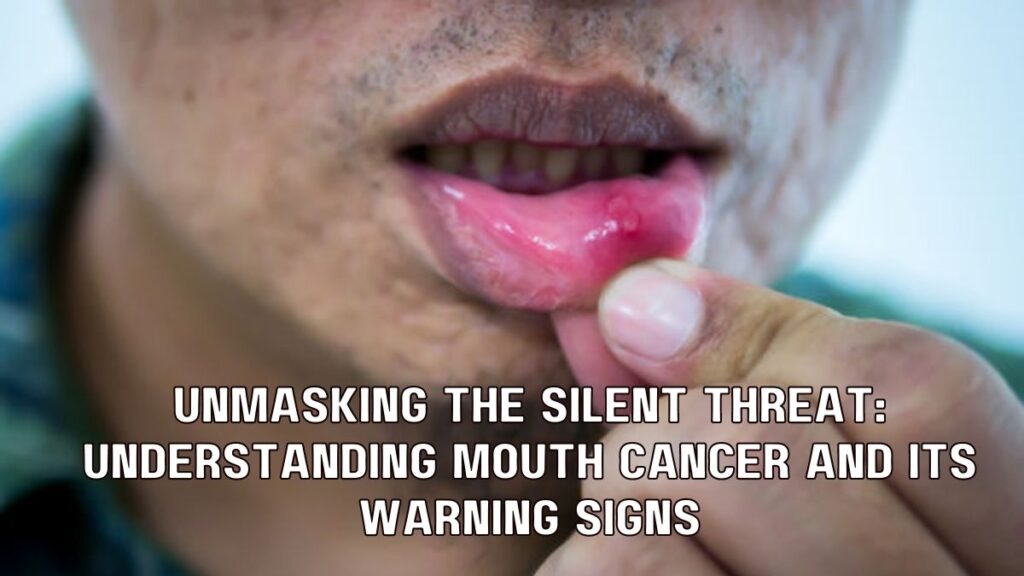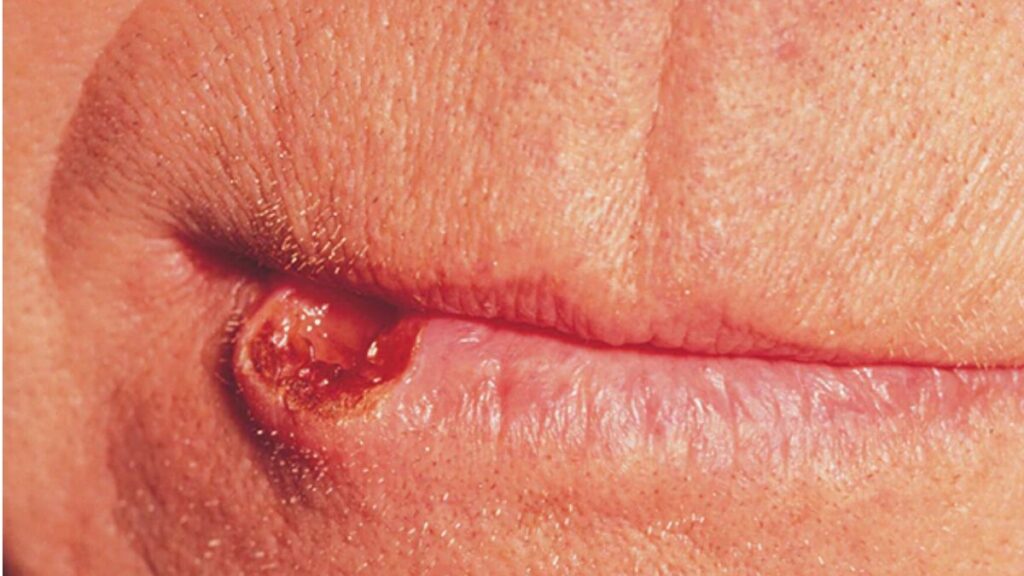In a world where health concerns often take center stage, some conditions remain in the shadows, silently posing a significant threat to our well-being. One such hidden danger is mouth cancer, a condition that often goes unnoticed until it reaches advanced stages. To shed light on this silent threat, let’s delve into what mouth cancer is, its potential causes, and the crucial warning signs that everyone should be aware of.
What is Mouth Cancer?
Mouth cancer, also known as oral cancer or oral cavity cancer, refers to the uncontrolled growth of abnormal cells in the oral cavity, including the lips, tongue, cheeks, gums, and the roof or floor of the mouth. This condition can lead to the formation of malignant tumors that have the potential to spread to other parts of the body if not detected and treated in its early stages.
Causes and Risk Factors:
While the exact cause of mouth cancer is not always clear, several risk factors have been identified that increase the likelihood of developing the disease:
- Tobacco Use: Smoking and using smokeless tobacco products significantly increase the risk of mouth cancer. The harmful chemicals in tobacco products can damage the cells in the oral cavity and lead to cancerous growth.
- Alcohol Consumption: Excessive and long-term alcohol consumption is closely linked to mouth cancer. Alcohol can irritate the cells in the mouth and make them more susceptible to cancerous changes.
- Human Papillomavirus (HPV) Infection: Certain strains of HPV, a common sexually transmitted infection, have been linked to the development of mouth cancer. HPV-related mouth cancer often occurs at the back of the throat and the base of the tongue.
- Poor Diet: A diet lacking in fruits and vegetables and high in processed foods can increase the risk of mouth cancer. Nutrient-rich foods play a role in maintaining healthy cells and preventing cancerous changes.
- Sun Exposure: Prolonged exposure to sunlight without proper protection can lead to lip cancer, especially in individuals with fair skin.
- Age and Gender: Mouth cancer is more common in individuals over the age of 45. Men are also at a higher risk compared to women.

Warning Signs:
Recognizing the warning signs of mouth cancer is crucial for early detection and successful treatment. Regular self-examinations and dental check-ups can aid in identifying potential issues. Some common warning signs include:
- Persistent Sores: Ulcers or sores in the mouth that do not heal within a few weeks can be a cause for concern.
- Unexplained Bleeding: Bleeding in the mouth, throat, or on the lips without an apparent cause should be investigated.
- White or Red Patches: Any unusual white or red patches on the gums, tongue, or the lining of the mouth could indicate a potential issue.
- Difficulty Swallowing or Chewing: Difficulty in swallowing, chewing, or moving the tongue or jaw could be indicative of a developing tumor.
- Persistent Sore Throat: A sore throat that doesn’t go away, or the feeling of something being caught in the throat, should be checked by a medical professional.
- Change in Voice: A persistent hoarseness or change in voice quality can be a symptom of cancer affecting the vocal cords.
- Numbness: Numbness or a tingling sensation in the mouth, lips, or tongue could indicate nerve involvement due to cancerous growth.
Conclusion:
Mouth cancer might be a silent threat, but with awareness and vigilance, it can be unmasked and dealt with effectively. By understanding the risk factors and recognizing the warning signs, individuals can take proactive steps to protect themselves. If you notice any persistent changes or symptoms in your oral health, it’s essential to consult a healthcare professional promptly. Regular dental check-ups, a healthy lifestyle, and avoiding known risk factors can go a long way in preventing the development of this potentially life-threatening condition. Remember, early detection and intervention are the keys to a successful outcome in the fight against mouth cancer.


